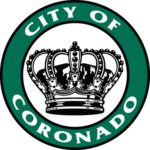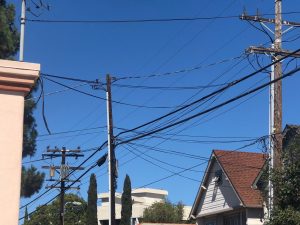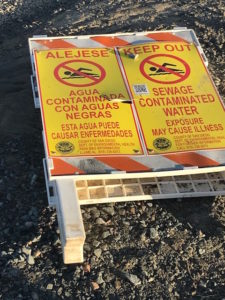 As the year comes to an end, City Manager Blair King gave an overview of the year’s accomplishments at the last council meeting of the year. “This is a sample of what you, the City Council, have accomplished and you’ve accomplished quite a bit,” he commented. Highlights include:
As the year comes to an end, City Manager Blair King gave an overview of the year’s accomplishments at the last council meeting of the year. “This is a sample of what you, the City Council, have accomplished and you’ve accomplished quite a bit,” he commented. Highlights include:
- The city adopted a balanced budget for fiscal year 2019-2020, with more than $2 million excess in General Fund revenue over expenditures. This is the ninth consecutive year of year-over-year growth in Coronado’s net financial position.
- Made the first “turbo” payment of $1,390,000 to accelerate the retirement of the former RDA loans to help the school district reach full funding status.
- Contributed $2.15 million to the Irrevocable Trust Fund to address unfunded pension liability.
- Transitioned from gas powered hand tools to electric for environmental sustainability and created an ordinance for community users.
- Initiated a State Planning Grant to assess sea level rise vulnerability.
- Hired an additional Police Officer and Emergency Preparedness Coordinator to enhance public safety, and hired staff to address technology, capital projects, cyber security and fleet issues. Purchased additional city vehicles and fire ladder truck.
- Provided $1 million in Community Grants and provided $1.339 million to the Coronado Hospital Foundation and celebrated the Coronado Bridge’s 50th anniversary.
- Funded the streets preventative maintenance program, free summer shuttle service, banner program and added a sixth commuter ferry time.
- Endorsed a variety of traffic calming measures and authorized relinquishment studies of SR 75 and 282.
- Worked on a variety of issues including Regional Housing Needs Association (RHNA) and utility undergrounding, transborder sewage issues, universally accessible playgrounds, small cell sites, draft Port Master Plan with the Port of San Diego, TransNet funding, Regional Airport Land Use Commission, and many more.
- The “Remotely Monitored Bicycle” continues to be popular in catching bike thieves with 96 arrests.
- Completion of the signal at Fourth and Alameda and installation of four accessible beach mats.
Revisions to the Community Grants process were presented by Senior Management Analyst Dominique Albrecht who pointed out that these changes should help streamline the process and create transparency. There is a dedicated web page for city grants with a downloadable PDF application, tailored to each community element. The city will have a 30-day public comment period and sponsor an applicant orientation in March. The grant fund disbursement will now be in July, rather than in August as in previous years. Organizations that receive a cumulative total of grant funding of $150,000 are subject to the audit requirement with multi-year funding requests no longer accepted.
Mayor Bailey commented, “We are light years ahead of where we were. This provides greater accountability and transparency, and many of the council recommendations are reflected in the new policies.” Councilmember Heinze wanted to accelerate the schedule and proposed a motion to that effect which ultimately failed. There was much discussion among the council about timing of year end data and ultimately the original Community Grant revisions were unanimously approved. An additional motion made by Councilmember Heinze to dissolve the Community Grants subcommittee of Mayor Bailey and Councilmember Donovan was also approved.
 No motion was needed for the status update on the Utility Undergrounding Program, which was given by Principal Engineer Ed Walton, identifying the five conversion districts who have submitted petitions. The city has agreed to provide 50-50 matching funds for valid petitions submitted by February 1, 2020. To qualify, a district must contain 65 contiguous parcels with 60 percent of property owners in support. Next steps include developing parcel assessments with finalized homeowner costs and then a second petition is required with 60 percent of property owners still in support. After the February deadline, the city will go back and look at the approved prioritization list developed by Harris and Associates and move ahead with additional areas.
No motion was needed for the status update on the Utility Undergrounding Program, which was given by Principal Engineer Ed Walton, identifying the five conversion districts who have submitted petitions. The city has agreed to provide 50-50 matching funds for valid petitions submitted by February 1, 2020. To qualify, a district must contain 65 contiguous parcels with 60 percent of property owners in support. Next steps include developing parcel assessments with finalized homeowner costs and then a second petition is required with 60 percent of property owners still in support. After the February deadline, the city will go back and look at the approved prioritization list developed by Harris and Associates and move ahead with additional areas.
- First Street (Alameda to D Ave.) Total estimated cost is $8.6 million with the unknown variable of the Navy lines along that route.
- Silver Strand (Navy Yacht Club to Loews Coronado Bay Road). Estimated total cost is $9 million. This project is currently being designed by SDG&E and has land ownership, environmental and other issues that must be addressed.
- J Avenue/Alameda (Sixth to Tenth Streets). Total estimated cost is $4.8 million.
- Adella/Coronado Beach Resort. Total estimated cost is $1.5 million.
- Adella/Maria/Ynez. Total estimated cost is $2.8 million. They are determining the viability of this district based on how the lines run.
There was a bevy of committee assignments during the meeting. They are as follows:
- Brad Willis was appointed to serve on the Cultural Arts Commission for a three-year term.
- Out of three applicants, Dan Orr was appointed to serve on the Mobility Commission for the remainder of the current term expiring in December 2022.
- Mary Jane Clements was selected out of four applicants to serve on the Historic Resource Commission for a three-year term.
- Two candidates were appointed to serve on the Civil Service Commission. Virginia Barr was appointed for a three-year term and Stephen Clark was selected to serve the remainder of a term expiring in December 2020.
Some items of note on the consent calendar included:
Awarding of a contract to Palm Engineering for the Third, Fourth and I Avenue Storm Drain Improvement Project.
Appointing Helen Holmes Peak from Lounsbery, Ferguson, Altona & Peak as Special Counsel for the November 2020 General Election.
Adoption of a Joint Resolution of the City Council between State and local shareholders recommending projects to address flows of wastes in the Tijuana River Valley (TRV). Mayor Bailey mentioned the recent Stakeholder Meeting in Imperial Beach and said that $300 million has been allocated by the Federal Government, with an additional $25 million from another fund, for this critical project.
Coronado is among the regional stakeholders who reviewed the alternatives and determined that the projects identified are likely to reduce transboundary water flows. The unanimously approved resolution allows the region to jointly recommend the project alternatives from the SB 507 Needs and Opportunities Assessment which include:
- Diversion of up to 163 million gallons per day to a New South Bay International Wastewater Treatment Plant
- Sedimentation and trash management infrastructure along the Tijuana River Valley flows
- Funding of the Border Water Infrastructure Program (BWIP) fund at its historic level of 100 million dollars
The Cays Park Survey results were pulled from the consent calendar to provide additional information. Principal Engineer Jim Newton outlined the upcoming schedule pointing out that ideas and options will be available to the public for input in late March/early April 2020 before the project is finalized.
Marisa Smith, Design Review Commission Liaison, presented several tentative parcel map projects. The first was at 250 B Avenue, where the existing building would be demolished to make way for four residential units. Meeting all the R-3 (Multiple Family Residential Zone) requirements, it came with a recommendation from the Planning Commission and city staff and the council unanimously approved it. The second project was at 419-421 E Avenue and the council approved a resolution that allowed the existing units to remain but be designated for condominium ownership.
The meeting concluded with birthday salutations for Councilmember Benzian.




